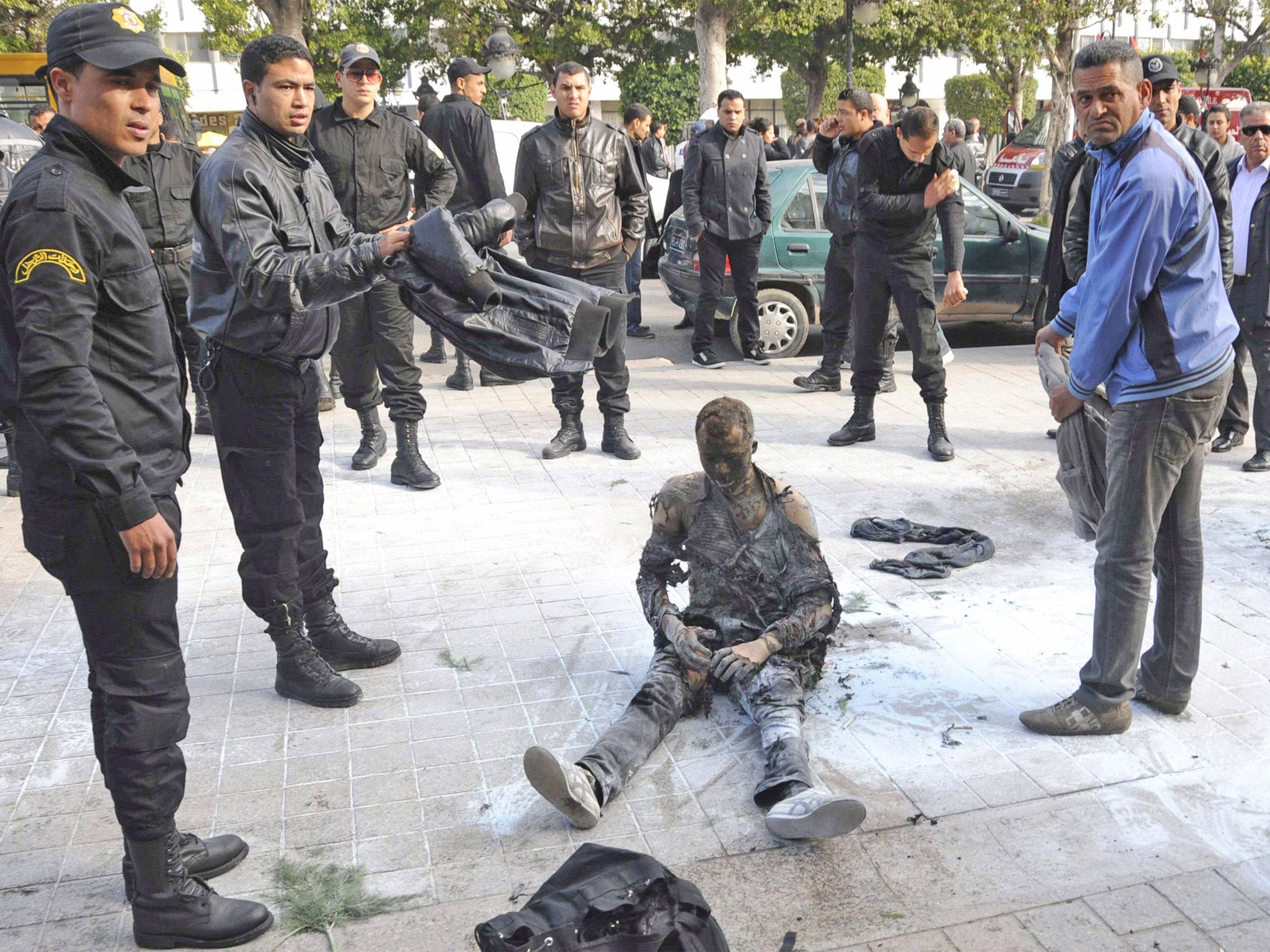Tunisian man immolates himself in Arab Spring reprise

A young cigarette vendor has set himself on fire in Tunis, reviving memories of similar events two years ago that sparked an uprising which spread across the Arab world.
“This is the youth selling cigarettes, this is unemployment,” yelled 27-year-old Adel Khadhri, before setting himself alight on the steps of the municipal theatre in the centre of the city. Doctors said Mr Khadri was in a “critical” condition, but that he was likely to survive.
In an ironic footnote to the incident, Mr Khadhri was taken to the nearby Mohammed Bouazizi Burn and Trauma Center, named after the 26-year-old street vendor who set himself alight following an argument with authorities, and whose death sparked popular protests that topped President Zine al-Abidine Ben Ali two years ago.
While there have been other copycat burnings since, this is the first to take place in the capital city. The widely circulated images of Mr Khadhri’s charred body set a bleak backdrop to legislative discussions about the formation of a new government, which were taking place today. Representatives at the National Constituent Assembly convened to vote on a ministerial reshuffle put forward by incoming Prime Minister Ali Laarayedh.
Mr Laarayedh took power after his predecessor, Hamadi Jebali, stepped down in the wake of a political crisis caused by the assassination of an opposition leader. After weeks of negotiations, Mr Laarayedh and his Islamist Ennahdha party proposed to put independents in key ministries, hoping the gesture would break the wave of anger at the party and its coalition allies.
However, critics say that the proposed government differs little from the old one, and that politicians have not been held accountable for their failures.
“For us they have the same plan, the same ideas. When I listen to the new employment minister, he follows the same discourse [as the old one],” said Salem Ayari, who co-founded the Union of Unemployed Graduates to advocate for an overhaul of government jobs policy. The group stages frequent protests at the lack of change in their economic situation.
While unemployment has actually fallen somewhat since a peak after the revolution, the level for degree-holders remains higher than for less educated Tunisians, meaning paradoxically that more qualified candidates have a harder time finding a job.
Tunisia has a highly educated population compared to peers in the region, but internal instability and weak European demand have weighed on the economy, slowing job growth.
Subscribe to Independent Premium to bookmark this article
Want to bookmark your favourite articles and stories to read or reference later? Start your Independent Premium subscription today.

Join our commenting forum
Join thought-provoking conversations, follow other Independent readers and see their replies